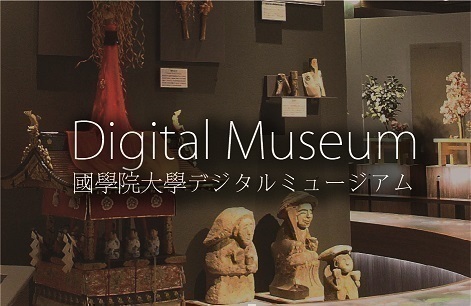- トップ
- Encyclopedia of Shinto
- Satō Nobuhiro
Encyclopedia of Shinto
| Main Menu: | |
| Links: |
詳細表示 (Complete Article)
| カテゴリー1: | 8. Schools, Groups, and Personalities |
|---|---|
| カテゴリー2: | Personalities |
| Title | Satō Nobuhiro |
| Text | (1769-185) Scholar of economics in the late Edo period. His style was Genkai, his common name was Momosuke, and he used numerous epistolary names, including Chinen, Shōan and Yūsai. Born in 1769 as the eldest son of Satō Nobutaka, a physician in Okachi District, Dewa Province (an area on the border of present-day Yamagata and Akita Prefectures). In 1781, at the age of thirteen, Satō accompanied his father as he toured Japan's northeastern and Kantō regions. In the course of that journey, he witnessed first-hand the plight of those suffering through the Great Tenmei Famine, an experience which led him to study the administration of economic resources for the salvation of the people. After the death of his father, Satō traveled to Edo in 1784 at the age of sixteen, and studied numerous disciplines, including Western Studies (rangaku) under Udagawa Genzui; astronomy, geography, calendrical calculation and land survey techniques under Kimura Taizō; and Confucianism under Inoue Shimei. In 1808, an introduction from one of the elders of the Awa Domain allowed Satō to spend time in Tokushima, where he composed several works including Kaibōsaku (Stategies for Naval Defense) and Seiyō rekkokushi ryaku (A Brief History of Several Western Nations). Thereafter, he secluded himself in the village of Mamezaku, in Kazusa Province's Yamanobe District (present-day Togane, Chiba Prefecture). In 1815, he became a student of Hirata Atsutane, whose teachings profoundly influenced him, and simultaneously entered into studies with Yoshikawa Genjūrō, proponent of Yoshikawa Shintō. In this way, his knowledge of Confucianism and ancient history was supplemented by a new understanding of Shinto and nativism (kokugaku), thus giving him the foundation for his characteristic style of economic doctrine, which proclaimed Japan's superiority among all the nations and set out practical measures for fostering industry to assure that dominance. Nobuhiro wrote prolifically throughout first decades of the nineteenth century, but he was caught attempting to enter Edo illegally in 1833, and was punished by being forbidden to come within ten ri (approximately 40 kilometers) of Edo's perimeter, and placed under house arrest in the village of Shikatebukuro, Adachi District of Musashi Province (present-day Saitama City, Saitama Prefecture). Nonetheless, many expectations were still directed toward Satō, and even daimyō continued to seek his advice. He responded to such requests through writing, contributing much to the so-called Tempō Reforms (1841-43). He finally received a pardon from the Tokugawa government in 1846 that allowed him to return to Edo, where he would live out his remaining days at his son Nobuaki's home. Satō died on the sixth day of the first month of 1850, at the age of eighty-two and was given the posthumous Buddhist name Shinbuin Kenkon Tokuyū Koji. Satō is attributed with numerous works, including Bukka yoron (Excursus on Commodity Prices), Keizai mondō (Questions and Answers on Economics), Fukkohō (Restoration of Ancient Law), Kaibō yoron (Excursus on Naval Defense), Sonka zateki ron, Suitō hiroku (Secret Memoir of Worthy Traditions of the Ancestors), Kondō hisaku (The Confusion Regarding Secret Measures), Tenchūki (Record of the Pillar of the Heavens), Yōzōka'iku ron (Treatise on Fostering the Development of Techniques of Smelting and Refining), Keizai yōroku (Economic Digest), Sansō hiroku (Secret Record of the Mountains), Nōsei honron (Principal Discourse on Agricultural Economics) and Sōmoku rokubu kōshuhō (Agronomy of Six Varieties of Plants). Many doubts, however, remain about the authenticity of details of his career and writings. —Mori Mizue |




